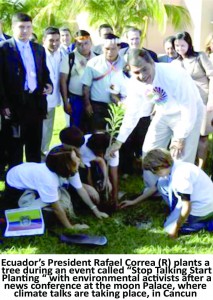Related posts
-
Granger will never allow a recount of the Region Four ballots until he makes peace with his loss
Dear Editor, David Granger will never allow a recount of the Region Four ballots until he... -
Very strange and suspicious that Granger would request a recount of the votes
Dear Editor, Following the walk-out by all the international observers from a reportedly rigged vote-counting process... -
Pure incompetence, carelessness, callousness and an inability to grasp the seriousness of COVID-19
Dear Editor, Never has it been more apparent the unacceptable levels of callousness and incompetence in...

